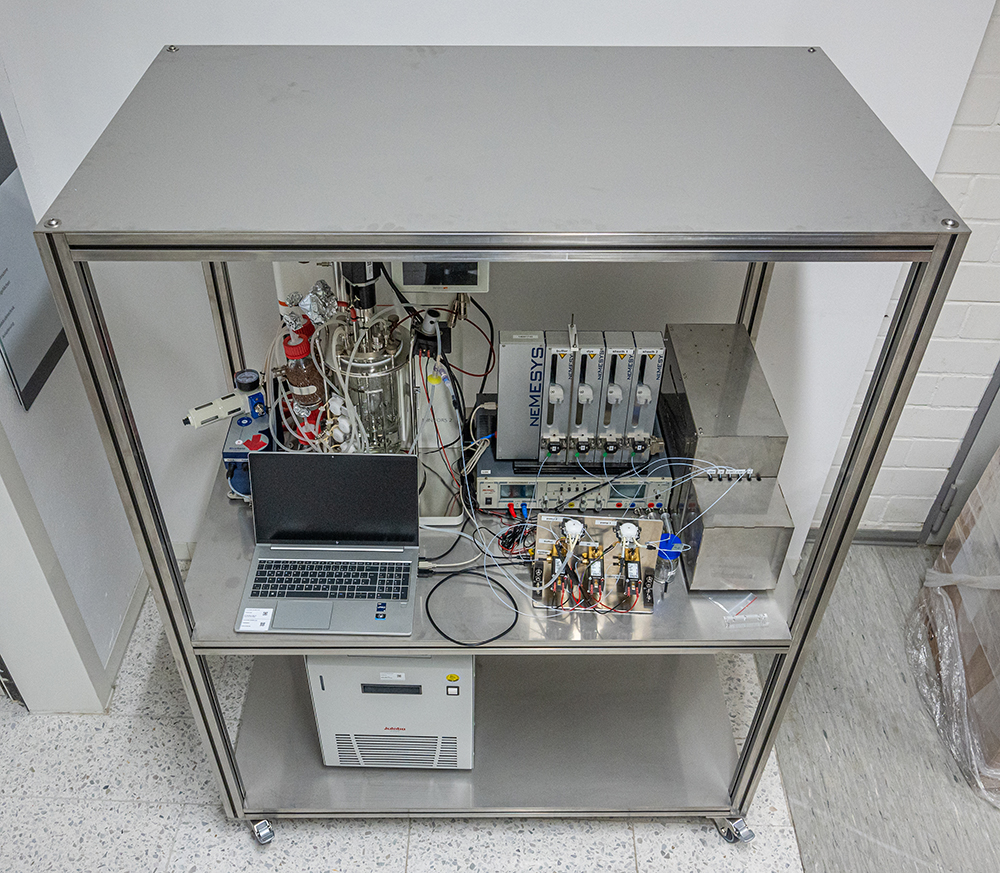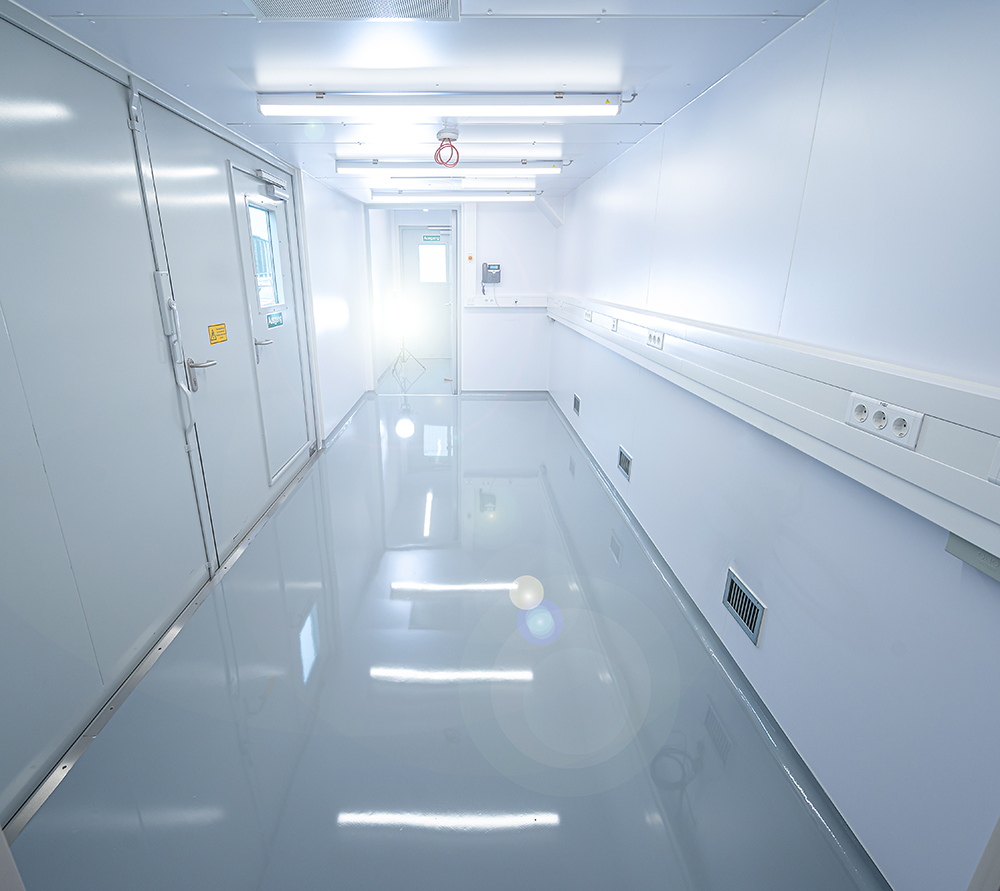

For biotechnology start-ups, particularly those with applications in human medicine, access to modularized, miniaturized and automated processes on the one hand and suitable laboratory and production capacities on the other is a major hurdle. Flexible bio-container laboratories, which are initially used as scalable research laboratories in the start-up phase, are a promising approach here.
In order to enable faster implementation of biotechnological processes in a container environment in the future, modularizable and scalable process engineering approaches are required. An increasing number of process steps also require successful miniaturization to enable integration into more complex process sequences. To implement these goals, two Fraunhofer IMM module solutions, both from the field of process modules and from the field of miniaturized sensor modules for cell-based processes, are to be developed in two exemplary use cases in this project. This will build up fundamental know-how for integrating such modules into automated production processes.
The first use case will deal with a process module for the nanoformulation of relevant (bio)therapeutics. To demonstrate this process module, a formulation module based on micromixer technology will be set up that can be used for the development and production of various nanodrugs.
The second use case, from the field of miniaturized sensor modules, envisages the implementation of a miniaturized flow cytometer that can automatically draw and analyse a cell sample from a process. This use case is chosen because the acquisition of cell-based measured variables such as cell count or cell viability for automation in pharmaceutical production is associated with high personnel costs and space requirements, which is a disruptive or limiting factor, especially when transferring processes to a container-based concept.
 Fraunhofer Institute for Microengineering and Microsystems IMM
Fraunhofer Institute for Microengineering and Microsystems IMM